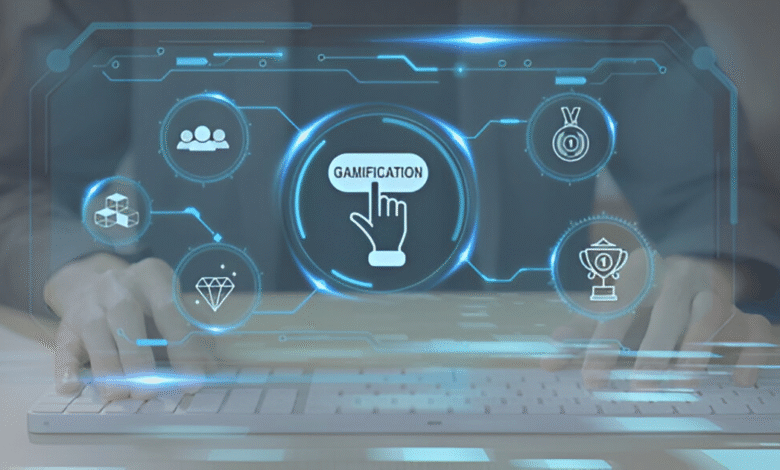Best Gamified Learning Apps for K–12 and Beyond
Discover the best gamified learning apps for K-12. Boost engagement with interactive educational games that make learning fun and effective.

In today’s digital age, gamified learning apps have revolutionized education by making learning interactive, engaging, and fun. These apps leverage game mechanics such as points, badges, leaderboards, and challenges to motivate students and enhance retention. Whether for K–12 students or lifelong learners, gamification in education bridges the gap between play and study, fostering a deeper understanding of complex subjects. This article explores the best gamified learning apps that cater to different age groups and learning needs, ensuring an effective and enjoyable educational experience.
As technology continues to evolve, educators and parents are increasingly turning to digital learning tools to supplement traditional teaching methods. The right gamified learning platform can boost student engagement, improve problem-solving skills, and encourage self-paced learning. From math and science to language arts and coding, these apps provide a personalized learning experience that adapts to individual progress.
Best Gamified Learning Apps for K–12 and Beyond
Why Gamified Learning Works
Gamification in education taps into the natural human desire for competition, achievement, and rewards. Studies show that students using game-based learning platforms exhibit higher motivation and retention rates compared to traditional methods. By incorporating elements like levels, instant feedback, and interactive challenges, these apps create an immersive learning environment. The psychological principles behind gamified learning apps include dopamine-driven rewards, which keep learners engaged. When students earn badges or unlock new levels, they experience a sense of accomplishment, encouraging them to progress further.
Best Gamified Learning Apps for K–5 Students
ABCmouse
ABCmouse is a top-rated early learning app designed for children aged 2–8. It covers subjects like reading, math, science, and art through interactive games and activities. The app uses a step-by-step learning path with rewards to keep young learners motivated.
Prodigy Math
Prodigy Math turns math practice into an exciting role-playing game (RPG). Students solve math problems to defeat monsters and progress through the game. The curriculum aligns with Common Core and state standards, making it a favorite among teachers.
Khan Academy Kids
This free app offers a personalized learning journey with engaging stories, games, and activities. Khan Academy Kids focuses on foundational skills in literacy, math, and social-emotional development, making it ideal for early childhood education.
Top Gamified Apps for Middle School (6–8)
Duolingo
Duolingo makes language learning fun with its bite-sized lessons and streak system. Students earn XP (experience points) and compete with friends, making it one of the best gamified language apps.
Quizlet
Quizlet uses flashcards, quizzes, and interactive games to help students master subjects like history, science, and vocabulary. Its “Match” and “Gravity” games add a competitive edge to studying.
Education Edition
This game-based learning platform teaches coding, history, and teamwork through block-building adventures. Educators can create custom lessons, making it a versatile tool for STEM education.
Engaging Gamified Apps for High School (9–12)
Kahoot!
Kahoot! turns quizzes into live multiplayer games, making classroom learning interactive. Teachers can create custom quizzes, and students compete in Real-time, reinforcing knowledge through play-based learning.
CodeCombat
For students interested in coding and Computer science, CodeCombat teaches Python and JavaScript through a fantasy RPG. Learners write code to control characters, making programming concepts intuitive.
Brainscape
This smart flashcard app uses spaced repetition and gamification to enhance memory retention. Ideal for AP exam prep and standardized tests, Brainscape adapts to each student’s learning pace.
Gamified Learning for College and Beyond
Memrise
Memrise combines mems (memory aids) and spaced repetition to help learners master new languages. Its leaderboard system adds a competitive element, making it great for adult learners.
Brilliant
Focused on STEM subjects, Brilliant offers interactive problem-solving courses in math, physics, and computer science. Its hands-on approach ensures deep conceptual understanding.
Anki
A powerful flashcard app, Anki uses spaced repetition algorithms to optimize long-term retention. Popular among medical students and professionals, it’s a must-have for advanced learners.
Future Prospects of Best Gamified Learning Apps for K–12
AI-Powered Personalization
Future gamified learning apps will leverage AI-driven adaptive learning to customize content based on each student’s strengths and weaknesses. Machine learning will analyze performance in real-time, adjusting difficulty levels and suggesting targeted exercises. This ensures a truly personalized education experience for every learner.
Virtual & Augmented Reality Integration
VR and AR technologies will revolutionize gamified learning by creating immersive educational worlds. Students could explore historical events in VR or interact with 3D science models in AR, making abstract concepts tangible. These advancements will deepen engagement and improve long-term knowledge retention.
Blockchain for Credentialing & Rewards
Blockchain technology may be used to securely track and verify achievements, badges, and certifications earned in gamified apps. This allows students to build a verifiable digital portfolio of skills, useful for academic and career advancement. Decentralized rewards could also enable cross-platform progression.
Collaborative Learning Features
Future apps will emphasize multiplayer and team-based challenges, fostering peer collaboration. Features like live leaderboards, group quests, and co-op problem-solving will make learning more interactive. Social elements will encourage healthy competition and community-driven education.
Expansion into Workforce & Lifelong Learning
Gamification won’t stop at K–12—expect more apps targeting corporate training, upskilling, and professional development. Companies will adopt gamified LMS (Learning Management Systems) to train employees, making workplace learning more engaging and measurable.
Data-Driven Insights for Educators
Advanced analytics dashboards will provide teachers with real-time data on student progress, engagement, and knowledge gaps. This will help educators tailor lessons and interventions, bridging the gap between gamified learning and traditional instruction.
Inclusive Design
Future apps will prioritize accessibility, diversity, and digital well-being, ensuring gamification benefits all learners. Features like screen-time management, dyslexia-friendly fonts, and culturally inclusive content will make education more equitable.
Metaverse Learning
As the metaverse evolves, gamified education could expand into persistent virtual campuses where students learn, socialize, and complete quests across devices. Seamless mobile-to-VR transitions will make learning truly borderless.
Read More: LOGICAL REASONING AND CRITICAL THINKING SKILLS; DECISION-MAKING USING QUANTITATIVE DATA
Conclusion
Gamified learning apps have transformed education by blending entertainment with knowledge acquisition. These tools cater to all age groups, from young children to adult learners, ensuring that education remains engaging and effective. By incorporating game mechanics, such as rewards, challenges, and competition, these apps foster a love for learning while improving retention and critical thinking skills.
As technology advances, we can expect even more innovative gamification strategies to emerge, further enhancing the learning experience. Whether used in classrooms or for self-study, gamified learning platforms are here to stay, offering a dynamic and interactive approach to education.
FAQs
What are gamified learning apps?
Gamified learning apps are educational tools that incorporate game-like elements such as points, levels, and rewards to make learning interactive and engaging. They help students stay motivated while mastering subjects.
Which age groups benefit most from gamified learning?
These apps are designed for all ages, from K–12 students to adult learners. Younger kids enjoy colorful, story-based games, while older students benefit from competitive challenges and skill-building activities.
Do gamified learning apps improve academic performance?
Yes, studies show that game-based learning boosts retention, engagement, and problem-solving skills by making education fun and interactive.
Are there free gamified learning apps available?
Many apps, like Duolingo, Kahoot!, and Khan Academy Kids, offer free versions with optional premium upgrades for advanced features.
Can teachers use gamified apps in classrooms?
Absolutely! Apps like Prodigy Math, Quizlet, and Minecraft: Education Edition are widely used in schools to make lessons more interactive and collaborative.











